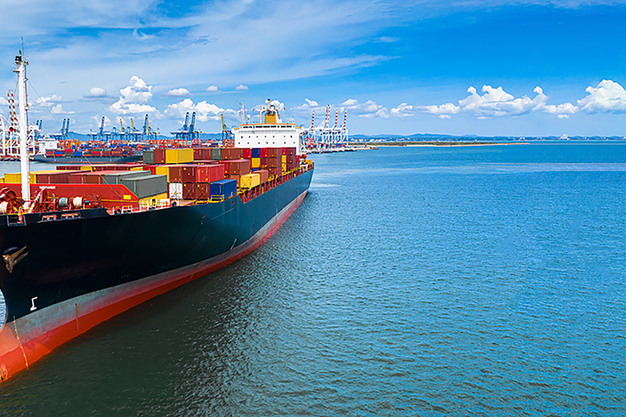Following a three-day port strike on the U.S. East Coast last October, the International Longshoremen's Association (ILA) reached an agreement with the United States Maritime Alliance (USMX) on a 65 percent wage increase over the next six years. In November, negotiations on outstanding issues - the automation of U.S. ports – resumed but broke down. The ILA is trying to prevent U.S. ports from getting automated to save the dockworkers' jobs. This week talks between employees and dockworker unions resumed across the U.S. East and Gulf coasts in hopes of preventing another port strike from happening on January 15. "This is the day the existing contract between ILA and USMX expires and it's also five days before president-elect Trump will take office," says Pat Compres of Advance Customs Brokers.
Compres thinks USMX and the carriers may not be willing to bend over quickly as automation is very much needed. "If USMX would change its position on automation, ports would be prevented from automating for another six years, the duration of the contract." While there are many uncertainties at the moment, Compres and her business partner Maria Bermudez believe a strike will likely occur. "In reality, nobody knows, but I think the ports may be closed for a few days," says Bermudez. With President Trump taking office on January 21st chances are this will be one of the first issues he will address. "He is already being briefed now and very much aware of the situation, so he can act quickly following the inauguration. After all, this would not be an effective way to start a new presidency."
 © Mr.siwabud Veerapaisarn | Dreamstime
© Mr.siwabud Veerapaisarn | Dreamstime
Shift to bulk vessels
In the meantime, what can shippers and importers do? "It is better to hope for the best and plan for the worst," commented Compres. "First of all, I recommend shippers and importers review the contracts they have with their carriers and find out if they can protect themselves." Secondly, it will be critical to figure out another way to move cargo. "As an example, Peru got ahead of the game by shipping a bulk vessel for the very first time," said Bermudez. As opposed to container ships, bulk vessels will not be impacted by a strike as they arrive at non-ILA ports like Gloucester City, New Jersey. "Chile and South Africa have been using bulk vessels for a very long time and this could be a very good temporary solution for Peru." Air shipments could also be an alternative to ocean but what will the cost be?
Produce shipments from South America are expected to be most severely impacted and delays are expected to happen on both coasts. While the strike would only pertain to East Coast ports, congestion is expected on the West Coast. "California is already extremely busy on regular cargo and any additional cargo going to the West Coast will create backlogs and cause delays." Produce from Central America won't be much affected as this region mainly works with regional carriers that arrive at non-ILA terminals.
Compres thinks that all cargo arriving prior to January 15th should be pulled out of the port before midnight on that day. If not out of the port, importers should check with carriers on their demurrage and force majeure policy. "If produce is on the water when the strike starts, vessels will likely have to be waiting on open water until the ports re-open. Once they open, expect delays in offloading vessels and congestion at terminals," she commented.
 For more information:
For more information:
Pat Compres
Advance Customs Brokers
Tel: 786-476-0700
[email protected]
www.advancecustomsbrokers.com










